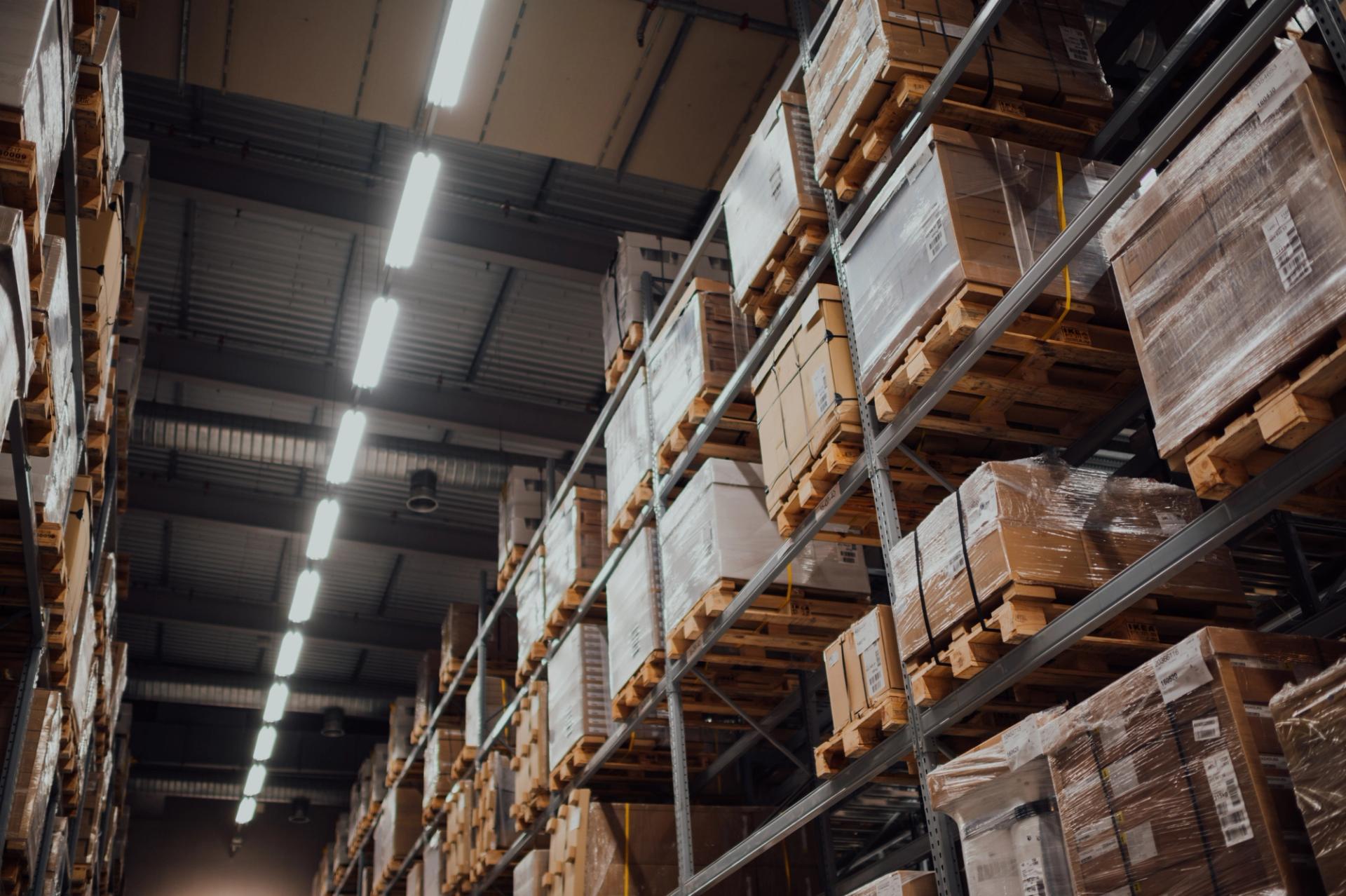Kantar survey: How companies cope with material shortages and supply bottlenecks
September 20, 2022
- New Insight

Paradigm shift in procurement philosophy: 85 percent of companies aim to establish new suppliers; 77 percent increase inventories, 66 push the use of alternative materials – and almost two out of three companies (61 percent) examine the integration of relevant production steps into their own operations (insourcing). These are the findings of a recent survey of German manufacturing companies conducted by the market research institute Kantar Public on behalf of the management consultancy FTI-Andersch.
- Machinery and plant manufacturers more often willing to pay price premiums above market level (30 percent of respondents)
- 72 percent of companies intend to deepen relationships with established suppliers
- There is a lack of qualified personnel for the expansion of own production capacities
"In almost every sector in the manufacturing industry, companies are adapting their procurement strategy to the new reality," says Florian Warring, expert in purchasing and supply chain management at FTI-Andersch, the German consulting unit of FTI Consulting specializing in restructuring, business transformation and transactions. "External circumstances are forcing them to do so: From cost optimization to securing supplies, from maximum flexibility to long-term availability of goods, from global division of labor to rather local sourcing and production – supply chain managers are already in the process of adjusting the fundamental premises of their previously successful approach."
This confronts companies with considerable challenges. One strategy to free up time: Paying price premiums above market level on a short-term basis. However, only 15 percent of the companies surveyed have done this. Only the mechanical and plant engineering sector is an exception: In this sector, 30 percent of companies stated that they had accepted price surcharges above market level to ensure the availability of materials.
Florian Warring says: "Mechanical and plant engineering with its complex global supply chains is a good example of the high dependence on suppliers and sub-suppliers. That is why it makes perfect sense in some cases to initially accept price premiums in certain situations and thus stabilize the entire supply chain. In the long term, however, this can only work if these price markups can also be passed on to the end customers. And at the same time, the strategic question is addressed: How can dependencies in supply chains be permanently reduced in the future?"
Intense competition for suppliers, when everyone is planning an increase at the same time – companies with a long-term perspective have an advantage
More than eight out of ten companies (85 percent) are currently working on establishing new supplier relationships in response to existing dependencies and subsequent supply bottlenecks. "Not an easy task when everyone is planning the same thing at the same time," says Florian Warring. The companies surveyed are using the following instruments to attract new suppliers: 74 percent are willing to agree to fixed purchase volumes, 72 percent negotiate long-term supply contracts, 66 percent seek to establish strategic partnerships, and more than half (55 percent) want to reactivate previous supplier relationships.
"Competition is immense, however, companies have no choice but to deal with it right now," says Florian Warring. "Those who have already relied on multi-sourcing in the past, or at least maintained good relationships with non-suppliers as well, are obviously in a better position now. And creativity and unconventional approaches are also needed, especially if building up new suppliers is not successful in the end."
This includes strengthening active supplier relationships, which 72 percent of companies intend to work on. Florian Warring says: "When establishing strategic partnerships these days, you have to put yourself in your suppliers' shoes: What do they really need? What are they interested in? What are the opportunities for deeper technology partnerships? Which stakeholders from my network can help them? It is important to think the idea of partnership far beyond contractual terms, pricing and delivery times. Purchasing alliances, often frowned upon, except for auxiliaries and consumables, can also be another option for companies."
Reintegration of production: Workforce as a major bottleneck
Even more complex than establishing new supplier relationships is the (re)/integration of relevant production steps into the own corporate structure, also called 'insourcing'. "In most cases, insourcing is not primarily about further cost optimization, but about risk reduction," says Philipp Oemler, Director and Operations Expert at FTI-Andersch. "Political instability, complex logistics, environmental uncertainties – many companies are reassessing the relationship between opportunities and risks."
To accelerate insourcing, 72 percent of companies invest in new machines and tools as well as hire temporary workers. 59 percent want to recruit additional employees (67 percent see the shortage of personnel as a major challenge in this context), 45 percent adapt their design and construction, 34 percent extend shift operations and 29 percent rely on outsourcing of less critical components in return. In mechanical and plant engineering, 46 percent of companies plan to use this instrument.
Philipp Oemler says: "The key challenge in insourcing is the lack of qualified personnel on the labor market. It is also a problem for companies that their own flexibility decreases with every additional production step that is insourced, which means that they may ultimately have to accept unprofitable assignments to utilize their production capacities. Finally, a comprehensive analysis of the effects of insourcing is needed, because if it is applied too extensively, it can quickly put existing suppliers in a critical position – and therefore threaten a well-established economic eco-system with all its dependencies."
"Insourcing must therefore take place in a very focused way," says Philipp Oemler. "We recommend that companies redefine the really relevant parts of their product portfolio and the core components required for them on an objective basis. They need to evaluate component by component in all relevant dimensions what insourcing means and whether it is feasible or not. Otherwise, after decades of successful globalization, management is in danger of overwhelming its own organization and its evolved eco-system. And in doing so, they almost inevitably provoke strategic mistakes that will significantly reduce the companies' ability to survive in the coming years."
"Manufacturing companies need to ensure that the pendulum does not swing too far from one extreme to the other, both in terms of supplier management and the relocation of production capacities and processes," says Florian Warring. "What is required in the short term must also be strategically evaluated in the long term. This time of shortages and supply bottlenecks should not cause purchasers and supply chain managers to lose sight of a very essential task: namely, to contribute positively to the company's margins through cost-optimized procurement. This business management function, which has been so relevant over the last decade, must now be adapted to some extent, but not completely abandoned. This requires strategic foresight."
About Kantar Public's research:
On behalf of the management consultancy FTI-Andersch, the market research company Kantar Public conducted a telephone survey of 100 companies in Germany from the 'manufacturing industry' with a focus on 'mechanical and plant engineering' (50 companies) as part of the 'Supply Chain Barometer 2022' study on challenges and resulting measures in supply chains.
The turnover of the companies is at least 50 million euros. 30 (about one third) of the companies surveyed generate more than 500 million euros in turnover per year. The percentages were weighted according to their share of the manufacturing sector by sub-sector. The survey period is the second quarter of 2022 (May/June).
For a more detailed insight into the data, please contact FTI-Andersch directly.
About FTI-Andersch:
FTI-Andersch is a management consultancy that supports its clients in the development and implementation of viable future/performance and restructuring concepts. FTI-Andersch actively accompanies companies that have to deal with operational or financial challenges and change processes – or that want to align their business model, organization and processes for the future at an early stage.
Our clients include, in particular, medium-sized companies and corporate groups that operate internationally. FTI-Andersch is part of the international FTI Consulting Group (NYSE: FCN) with more than 7,000 employees.
Your Contacts
 Florian Warring
Florian WarringSenior Director